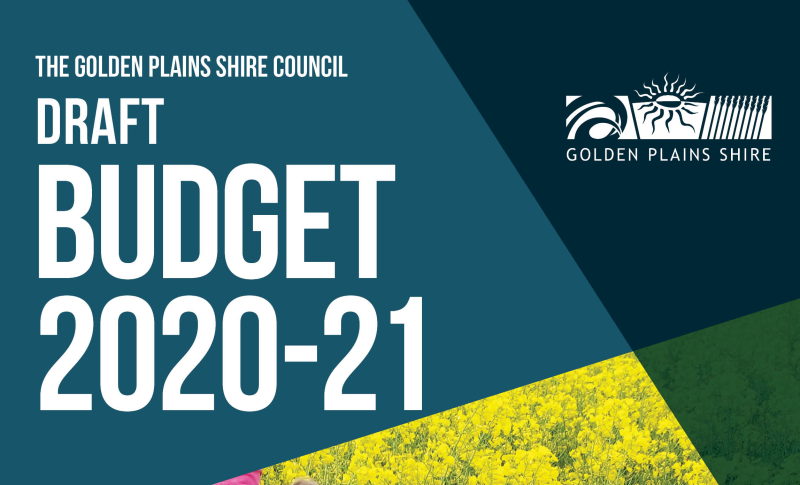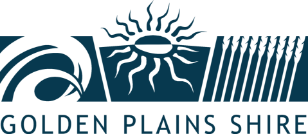
Thank you to all residents who submitted questions about the 2020/21 Draft Budget. Below are a list of some of the questions Council received over the last few weeks and the provided response from Council:
Has Council considered connecting the Maude Recreation Reserve’s toilets at Bunjil Lookout to town water?
Council has investigated the provision of town water to the Maude Recreation Reserve’s toilets at Bunjil Lookout. Council is currently sourcing additional detailed costings with funding courses in the budget yet to be considered.
What is the Waste Management Charge?
The Waste Management Charge is a set charge for each rateable property based on ownership of any land used primarily for residential purposes within the area designated for waste collection. Waste Management Charges are based on achieving full cost recovery to ensure the service is sustainable for the long term. The annual charge has been retained at 2019/20 levels with a $10 increase due to the Victorian Government’s planned increase to the landfill levy. Council currently provides weekly recycling and fortnightly general waste collection services.
Does the Waste Management charge apply to properties that do not receive kerbside waste collections?
Residents not receiving waste management services for whatever reason are not charged the Waste Management charge.
Why doesn’t Council open another waste transfer station?
Golden Plains Shire Council operates a waste transfer station in Rokewood. It is not financially feasible to have multiple waste transfer stations in Golden Plains Shire. Residents are also able to utilise the waste transfer stations in City of Ballarat and City of Greater Geelong.
Why does Council charge rates?
Councils have a responsibility to provide access to services and infrastructure for the public benefit of all and have the challenge of providing these services in a rate capped environment. Golden Plains Shire Council offers a wide range of more than 60 services and benefits to the community, with the expectation that all property owners pay a fair share of rates towards these services. The Local Government Act 1989 enables councils to levy rates and charges.
What is the rate cap for 2020/21?
Since 2015, the Victorian Minister for Local Government sets local council rate caps and oversees the property valuation system used to calculate rates. A rate cap is the maximum amount a council can increase general rates and municipal charges. The 2020/21 rate cap for general rates and municipal charges has been set by the Victorian Government at 2.0%. This is down from 2.5% in 2019/20.
Why does Council levy a Municipal Charge to all ratepayers?
One of the challenges of the legislated rating system is high population growth. Properties in growth townships with increasing property values will continue to pay much higher rate increases than properties in other areas of Golden Plains Shire, resulting in properties in growth townships typically experiencing rate increases much higher than the average rate cap, with other areas experiencing rate decreases. In an effort to make this system fairer, the municipal charge is a flat fee of $306 applied to all properties.
Why are food vans expected to face a fee increase of 115%, especially when they are facing difficulty due to the COVID-19 pandemic?
Over the past year, Council has only issued two Mobile Food Truck permits. One is currently not operating due to issues not related to COVID-19, and the other was issued recently in Bannockburn. There was no fee for this due to a downturn in its business, however, they have been operating once a fortnight in Golden Plains Shire and in other areas in the City of Greater Geelong. This business is based in the City of Greater Geelong, and not Golden Plains Shire.
Why is Council increasing the fees for dog breeders?
Domestic Animal Business application, inspection and registration is a lengthy process and involves a large amount of Council officer time. Domestic Animal Business Breeding fees are required for breeders that have more than two fertile females, and are either not Dogs Victoria members or are breeding ‘cross’ breeds to sell. Victorian councils have been advised by the Victorian Department of Jobs, Precincts and Regions that they are to charge a substantial fee to recover costs. This registration is part of the cost of breeding and selling animals.
Why is there an increase to the archive planning file recovery fee when Council’s has a new electronic records management system?
The archival planning recovery fee is for the retrieval of files that are not digitalised. While Council has embraced digital records in recent years, not all records are yet digitalised. This fee is to ensure that Council’s costs and administrative fees are covered, including Council officer time and external contractor time, when required.
What does Council mean by a ‘recreation vehicle’?
A motorbike or motorised recreational vehicle is defined on Page 10 of the Golden Plains Shire Council Local Law. That being a motor vehicle as defined in the Road Safety Act 1986, whether registered or unregistered, used for recreational purposes on any land (excluding a Road) and includes, but is not limited to, the following motor vehicles:
- a motor vehicle with two (2) wheels, with or without a sidecar attached that is supported by a third wheel;
- a motor vehicle with three (3) wheels that is ridden in the same way as a motor vehicle with two (2) wheels; and
- any other motorised, recreational vehicle including, but not limited to, mini-bikes, trail bikes, monkey bike, motorised scooters, motorised go-carts, all-terrain vehicles and quad bikes,
- but excludes:
- a motorised wheelchair, or other aid used by a Person with a disability or limited mobility;
- a motorised farm vehicle that is being used for farming purposes; and
- a motorised bicycle with a maximum capacity of 22 watt aggregate power.
How is ‘use’ of a ‘recreation vehicle’ defined by Council?
Use involves the riding of a motorbike or motorised recreational vehicle. This does not include idling, or standing while the vehicle is turned off. Excessive idling is dealt with under EPA guidelines.
Will the proposed new charge be levied by Council to any person who owns a recreational motorcycle?
This fee will be charged on any new permit to ‘use’ a motor bike or motorised recreational vehicle on private land. This Local Law has been in place since January 2017, and nine permits have been issued, with seven remaining current. Council receives complaints relating to the noise caused by motorbikes on private land on a weekly basis. The Local Law and permits restrict the hours of use to protect the amenity of the area.
Will the new charge be levied on children’s motorcycles?
If the motorbike or motorised recreational vehicle complies with the definition in the Local Law, and the land owner intends to use them on their property, then a permit is required.
How will silent, but high-powered fast electric mountain bicycles be classed?
If the motorbike or motorised recreational vehicle fits the definition in the Local Law, and the land owner intends to use them on their property, then a permit is required. A permit may restrict a landowner using their bike in sensitive areas on their property. Council receives complaints from neighbours relating to damage caused by motorbikes, as well as noise caused.
Will the charge be levied against a property owner or tenant who allows a visitor to briefly ride or drive a recreational vehicle on their land once?
Yes, a permit would be required by the owner or tenant of the property. Even if this occurs on a single occasion, it could be for multiple hours, resulting in numerous complaints to Council. If a permit is issued, the owners or tenants will know the guidelines and conditions to follow.
Will Council keep a register of such vehicles kept in the Shire, and how will it establish where such vehicles are used?
Council has a software program that records all Local Law permits that are issued, including for the use of motorbikes and motorised recreational vehicles. This program documents the permit conditions, and a copy of the permit is also attached to Council’s document management system. Council officers rely on this when required to investigate a complaint from neighbours.
How does Council propose to establish where recreational vehicles are kept and used on private property?
A permit is required to use a motorbike or motorised recreational vehicle within a Residential Zone or any premises less than two hectares in size. A permit is also required if you use two or more in any zone between 2 and 20 hectares, and a permit is required if used in any area more than 20 hectares in size. This is not applicable to motorised wheel chairs, motorised bicycles under 22 watts and for motorbikes used for farming purposes.
How is ‘private land’ defined for the purpose of this new charge?
In relation to permits to use recreational vehicles on private land, private land is defined as any property located in a residential zone under the Golden Plains Shire Planning Scheme.
Council's 2020/21 Draft Budget is on public exhibition until this Friday, 29 May 2020. To read the Draft Budget or to find out how you can lodge a submission on the budget, click here.
